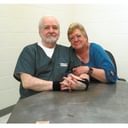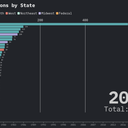The Texas Court of Criminal Appeals recently held that the methodology used by Dr. Richard Coons to predict the “future dangerousness” of capital defendants was unreliable. Whether a convicted defendant would be a future danger to society is a crucial question for juries in Texas in choosing between a life or death sentence. Dr. Coons has testified in over 150 death penalty trials across the state. He admitted in a recent hearing that he had developed his own methodology for assessing future dangerousness, one in which he considers the defendant’s conscience, attitudes toward violence and criminal history. “These factors,” according to the court opinion, “sound like common sense ones that the jury would consider on its own.” Capital defense experts consider this a significant ruling pertaining to expert testimony in death penalty cases. Russ Hunt Jr., who represented the defendant in the case where this ruling was made, said, “If you are going to be an expert, you should have some scientific basis of what you are testifying about.” Hunt continued, “[Coons] basically just says, ‘Trust me. I’m a doctor. I know it when I see it.’” Dr. Coons, a forensic psychiatrist, has recently stopped taking death penalty cases.
The Texas court nevertheless upheld the defendant’s (Billy Wayne Coble) death sentence in the case leading to this ruling. (S. Kreytak, “Longtime expert witness unreliable, court says,” Austin American-Statesman, October 19, 2010). See Arbitrariness.



